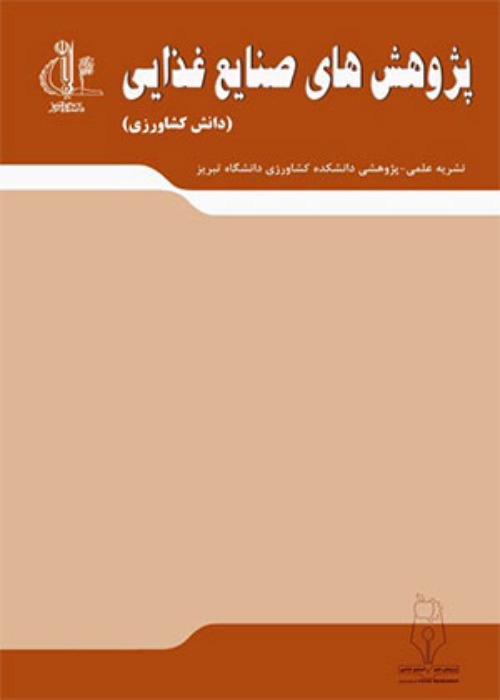The Effect of using Pomegranate Juice (Punica granatum L.) on Physicochemical, Textural and Sensory Properties of Low-fat Yoghurt Manufactured with Inulin
Yoghurt is an excellent source of high-quality protein, vitamins, and bioavailable minerals that are well tolerated by humans (Mckinley, 2005). A good quality yoghurt is usually made with whole milk, while a diet rich in animal fat is believed to be associated with health outcomes (Lees, 2020). According to previous prospective studies, replacing dairy fat with plant sources of fat may reduce the risk of cardiovascular disease (Chen et al. 2016). Therefore, as an alternative, special attention has been paid to the use of fat replacers to meet consumer demand in terms of nutritional value and high quality products. Inulin, a plant source prebiotic, is used as a fat substitute in dairy products that can maintain sensory properties (Guven et al. 2005). On the other hand, the addition of pulp and fruit juice may be useful in enhancing the lost flavor and color in dairy products (Wallace and Giusti, 2008). Fruit-flavored yoghurts had notably higher nutrient contents than plain yoghurt (Sanchez-Segarra et al., 2000). Pomegranate juice is a rich source of various plant chemicals with antioxidant and anti-inflammatory properties that can be added to yoghurt to increase its flavor and nutritional properties (Vučić et al. 2012). Trigueros et al. (2014) examined the antioxidant and polyphenolic activity of pomegranate yoghurt, and stated that phenolic contents of pomegranate not only had a positive effect on yoghurt color, but also reacted with the protein and enhanced the antioxidant activity of the yoghurt during storage. Similarly, there are different body of works in the literature on adding of pomegranate juice, peel and extracts to the dairy products (Arjmand 2011, Ali 2016 and Ibrahim et al. 2020), but virtually no published work has been found on producing low-fat yoghurt containing both fat replacer and pomegranate juice. Therefore, considering the need to produce healthy dairy products, this study was designed to investigate the effect of different amount of pomegranate juice on physicochemical, textural and sensory characteristics of low-fat yoghurt with 2% inulin
In this research, two control samples with whole milk (3% fat) and low-fat milk (1.5% fat) with 2% inulin were prepared separately. Then, three other yoghurt samples were produced with low-fat milk and 2% inulin by adding pomegranate juice at different concentrations of 5, 10 and 15% (v/v) in 3 replications. To achieve acceptable solid content and for improving gel firmness and consistency of the samples, the raw milk was concentrated with adding 2% of skim milk powder. All mixtures were pasteurized at 90°C for 5 min, cooled to 43±0.1°C, inoculated with 3% (w/v) of starter culture and distributed into plastic containers (100 ml), and incubated at 42±0.1°C until the pH reached to 4.6. Then the samples were refrigerated in 4±0.1°C for 22 days. The physicochemical, textural (hardness, springiness, cohesiveness and adhesiveness) and sensory properties of the treatments were evaluated on days 1, 8, 15 and 22.
Based on data analysis, by adding pomegranate juice, pH, viscosity and water holding capacity of samples decreased (p<0.05), and the acidity and synersis of the samples increased (p<0.05). As, the yoghurt sample containing 5% pomegranate juice had the lowest synersis and the highest water-holding capacity among yoghurts containing pomegranate juice. Increasing the percentage of pomegranate juice linearly raised the antioxidant properties (p<0.05); the highest antioxidant capacity belonged to the yoghurt sample with 15% pomegranate juice. The amount of protein in the samples did not change significantly, but with the increase in the amount of pomegranate juice, the amount of fat and dry matter decreased (p<0.05). Regarding the texture analysis, the addition of pomegranate juice percentage significantly reduced hardness, adhesiveness and cohesiveness values of the samples. (p<0.05). In terms of sensory evaluation, odor and flavor as well as overall acceptability were improved by increasing the pomegranate juice ratio (p<0.05). In this context, the texture and consistency did not improve well with the increase in the percentage of the juice. Increasing the storage time caused decrease in the pH, viscosity and water holding capacity of the yoghurt samples and increased the acidity and synersis value compared to the control samples (p<0.05). Also, a significant decrease in the antioxidant capacity of all samples was observed during storage (p<0.05). As expected, consistency and texture, smell and taste, and overall acceptability scores decreased by panelists on day 22.
In the current work, different amounts of pomegranate juice were added to low-fat yoghurt containing 2% inulin. Our findings showed that pomegranate juice can be used in certain quantities to produce flavored low-fat yoghurt. Totally, the best sensory properties were related to the samples containing 5% pomegranate juice; this sample had a reasonable antioxidant activity. Regarding physio-chemical properties, this sample also had the highest value of viscosity and water-holding capacity among the yoghurts manufactured with pomegranate juice. The texture of low-fat yoghurt containing 5% pomegranate juice had the highest hardness and adhesiveness compared to the control yoghurt with whole milk. So, based on the results, it can be concluded that low-fat flavored yoghurt with inulin and 5% pomegranate juice (w/w) can be commercially produced.
- حق عضویت دریافتی صرف حمایت از نشریات عضو و نگهداری، تکمیل و توسعه مگیران میشود.
- پرداخت حق اشتراک و دانلود مقالات اجازه بازنشر آن در سایر رسانههای چاپی و دیجیتال را به کاربر نمیدهد.


